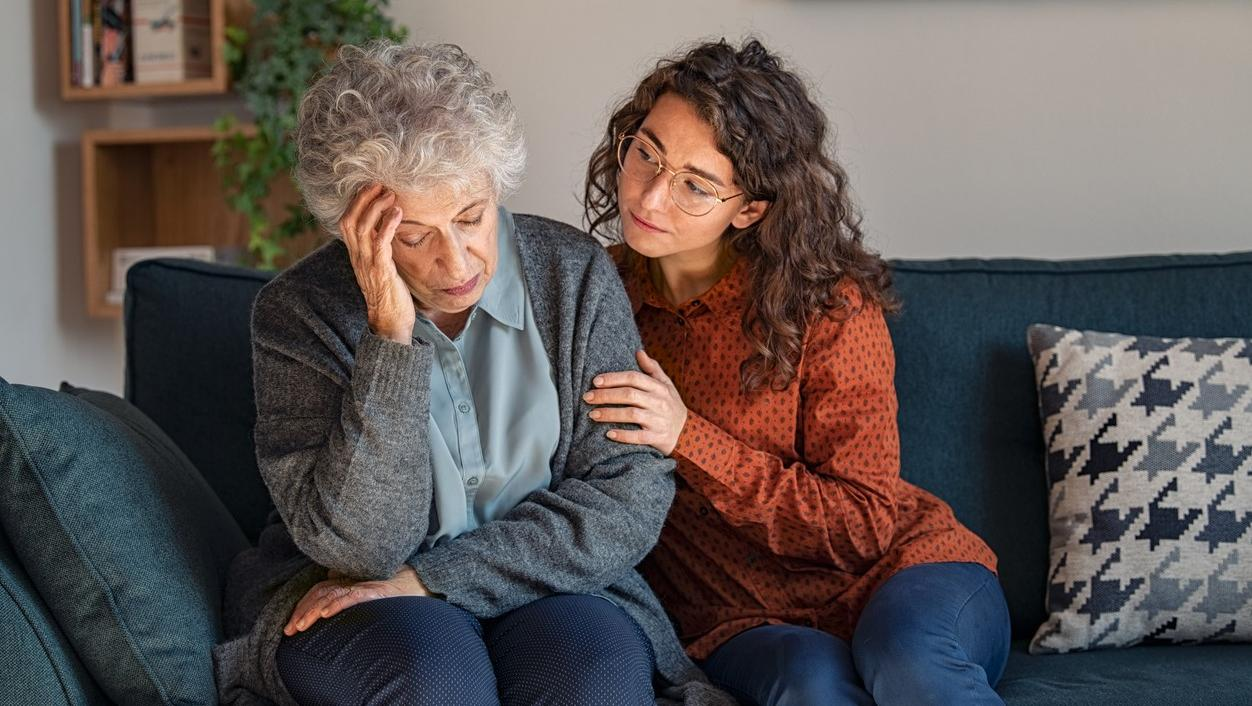Older hospitalized COVID-19 patients experienced faster cognitive decline than their uninfected counterparts, suggests a study published today in JAMA Network Open.
The multicenter Mayo Clinic–led study tracked cognitive function among 3,525 patients enrolled in the Atherosclerosis Risk in Communities (ARIC) study and the Collaborative Cohort of Cohorts for COVID-19 Research study from 2016 to 2022. All participants were examined with the ARIC neuropsychologic battery once before the pandemic, and 2,802 were examined with the battery during the pandemic.
The average patient age was 80.8 years, 59.1% were women, 78.6% were White, and 21.4% were Black. A total of 8.7% tested positive for COVID-19, and 33.6% of them were hospitalized. In total, 87.5% of participants were vaccinated, although only 55 infected patients were vaccinated before diagnosis.
Declines in executive function, memory
The median interval between baseline and follow-up cognitive evaluation was 2.9 years, and a median of 0.8 years elapsed between date of infection and follow-up.
The average annualized decline in global cognitive function was -0.09 standard-deviation units in uninfected participants, similar to that of nonhospitalized infected patients but slower (-0.06) than that of patients hospitalized for COVID-19 (excess change among the infected, -0.01).
While our study did not confirm an association of nonhospitalized infection with short-term cognitive decline in older adults, potential causal effects of infection on cognition were not ruled out.
"Results were similar in a case-only analysis but when removing participants who only self-reported an infection without a second confirmatory source of information, the rate of excess change was modestly greater among infected individuals: -0.03," the study authors wrote.
The rates of decline in executive function and memory scores per year were -0.04 and -0.02 among uninfected participants and -0.07 each among hospitalized patients, respectively. Language was unaffected. The respective excess changes in executive function (mental skills to handle daily tasks) and memory scores among hospitalized patients were -0.04 and -0.05. Nonhospitalized infection was not tied to cognitive decline in any domain.
The evidence for a greater association between hospitalized infection and cognitive decline among patients with diabetes and those with less than a high school education was modest.
"While our study did not confirm an association of nonhospitalized infection with short-term cognitive decline in older adults, potential causal effects of infection on cognition were not ruled out," the researchers wrote.
Reasons behind impaired cognition unclear
Whether SARS-CoV-2 infection triggers pathobiologic processes leading to accelerated cognitive decline distinct from other causes of hospitalization is unclear, they said.
Additional research is warranted to evaluate the effect of SARS-CoV-2 infection and reinfection on risk of long-term cognitive outcomes.
"It is possible that the physiological conditions enabling SARS-CoV-2 to progress to a severe state requiring hospitalization are the same conditions that increase susceptibility to accelerated cognitive change," the authors wrote. "Alternately, hospitalization-related factors such as pharmacological treatments, dietary changes, bed rest, or social isolation may contribute to cognitive changes."
In the latter case, SARS-CoV-2 would act as an upstream causal factor, but its effects would be indirectly mediated through hospitalization-related processes rather than directly through viral exposure or immune response, they noted.
"Our null findings for nonhospitalized infection are consistent with some, but not all, of the prior literature, and warrant additional investigation in large, US general population-based cohorts with longitudinal data on cognition and potential confounders," the researchers concluded. "Moreover, additional research is warranted to evaluate the effect of SARS-CoV-2 infection and reinfection on risk of long-term cognitive outcomes."



















